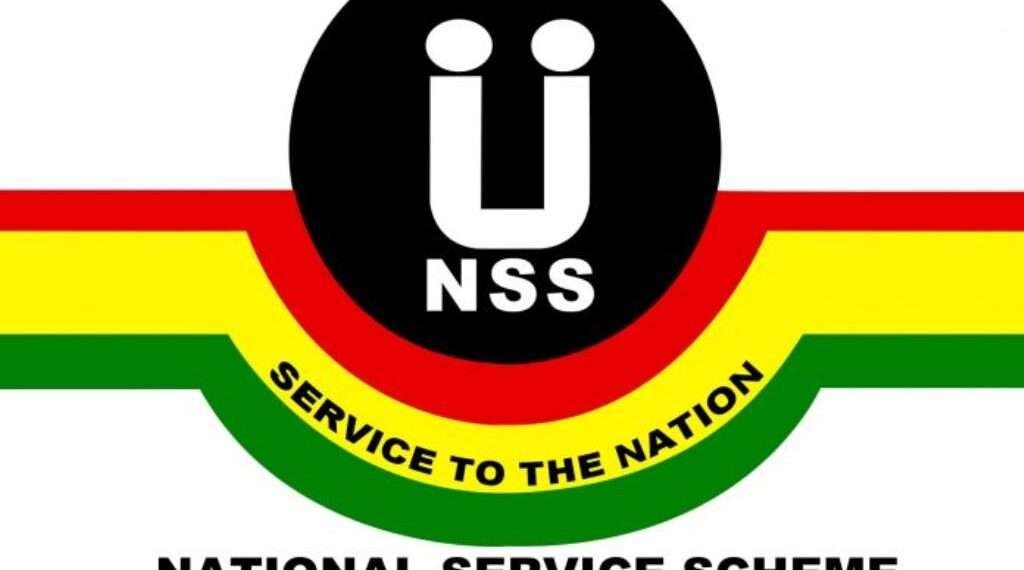The NSS Staff Division of the Public Services Workers’ Union under the TUC has welcomed the government’s decision to suspend the Central Management System (CMS), a digital platform previously used at the National Service Authority.
The staff, who have long raised concerns over the integrity of the CMS, hailed the move as a long-overdue step toward restoring public confidence and internal transparency.
In an official statement, the union described the suspension of the CMS as a “fervently welcomed” development.
“The staff leans fervently to this decision as we have always held to the provoking thought statement of Mr. Suleiman Braimah of the Media Foundation for West Africa, the man whose investigation uncovered the alleged ‘NSS SCANDAL,’ when he stated that the National Service Authority should not use the system run by its consultant due to the damning findings they uncovered.”
National Service Authority (NSA) Staff Division of the Public Services Workers’ Union
For years, the union had flagged the system—operated by Inpath Technologies Ghana—as problematic, especially in the aftermath of the notorious National Service Scandal.
That scandal, which shook the authority to its core, exposed wide-scale enrolment fraud and inefficiencies tied directly to the digital infrastructure in question.
The Central Management System, a digital platform designed to manage the enlistment and monitoring of national service personnel, came under severe scrutiny following revelations that it had enabled the registration of ghost names, unqualified personnel, and even fictitious national IDs.

The NSS staff at the authority have long argued that no system should be used without thorough vetting, particularly after the deep reputational damage caused by its earlier misuse.
The union cited comments by investigative journalist Sulemana Braimah of the Media Foundation for West Africa, whose findings helped uncover the extent of the NSA scandal.
Braimah’s previous call for the rejection of the CMS served as validation for the staff’s long-standing position.
According to the union, “we have always leaned on the provoking thought” from Braimah that any system used to manage service personnel must be above reproach and cleared of the damning findings uncovered during investigations.
The staff division emphasized that they had repeatedly communicated to management their stance that operations via the CMS should cease until full scrutiny is carried out by relevant stakeholders.
While the suspension may impact contractual obligations between Inpath Technologies and the National Service Authority, the union insisted that the move was necessary.
Reputation Over Revenue, NSS Staff Argue
The union statement further highlighted that no price can be placed on the damage done to staff morale and the Authority’s reputation as a result of the misuse of the CMS. In their words, “due diligence cannot be negotiated.”
Staff members recalled how the credibility of the NSA was dragged through the mud as investigations revealed that the CMS had facilitated enrolments of people aged 80 to 90 years, accepted handwritten notes as Ghana Cards, and created room for thousands of fake names on the payroll.
This, they noted, had cost the country over GHC 500 million, a figure cited by the Attorney General, which underscores the massive fiscal and moral failure tied to the now-suspended platform.

Midway through the statement, the union made clear that the suspension of the Central Management System should not merely be seen as a technical policy adjustment but as a strong stance in defense of integrity, institutional accountability, and public trust.
They commended the Minister for Youth Development and Empowerment, Hon. Malik Basintale, for responding to the voices of the people and staff alike.
The union also acknowledged the President’s ongoing efforts to uncover the truth and correct institutional wrongs, noting that this action is a reflection of that broader national agenda for transparency and justice in public institutions.
The staff maintained that any digital system used by the NSS must meet the highest standards of operational security, transparency, and user authentication.
Until such systems are developed or audited thoroughly, the union believes manual oversight may be preferable to digital loopholes that enable massive corruption.
A Call For Caution And Due Diligence
The union made a final call for caution in future digital transitions, warning against the uncritical outsourcing of critical state infrastructure without proper oversight.

They reiterated that restoring trust in the National Service Authority will take more than suspension—it will require a reexamination of all associated contracts, consultants, and technical arrangements.
Moving forward, the staff urged all stakeholders—government, civil society, and management—to act with vigilance. The CMS may be offline, but the lessons from its failures must remain at the forefront of institutional reforms.
For now, the decision to halt the use of the Central Management System has brought a measure of relief to the staff who felt the credibility of their work had long been compromised.
Whether this marks the beginning of true reform or merely a temporary reprieve remains to be seen—but the union has made its position clear: accountability must always come before convenience.
READ ALSO: Samini Expresses Admiration For President Mahama’s Leadership



















